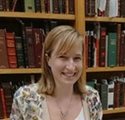DiversiWiki: A virtual OSA Wikipedia Edit-A-Thon
31 March 2021 12:00 - 14:00
Eastern Time (US & Canada) (UTC -05:00)As the fifth most visited site in the world, representation on Wikipedia matters! Raising the visibility of underrepresented people in science provides recognition of their contributions that can be an inspiration to others as well as diversify the pool of scientific experts perceived by government, media and institutions. Join this program to learn how to be a Wikipedia editor and practice your skills with trainers on hand to answer your questions.
How does it work?
You will learn how to be a Wikipedia editor – or hone your skills if you already are one – and edit, update or add articles on Wikipedia. Our goal is to raise the visibility of underrepresented people in optics on Wikipedia –the 5th most visited website in the world.
We will kick off with a brief training on why this work is important, instructions on how to begin and tips for making strong pages. Following that, it’s time to get to work for as long as you are able to stay. Wikipedia volunteers and OSA staff will be on hand until 14:00 EST, working alongside you and ready to answer any questions you have.
Ways to participate?
-
Improve Diversity – By strengthening existing or creating new pages for the underrepresented people in science we can improve diverse representation on the site.
-
Translate Pages – Wikipedia pages exist in multiple languages but not all pages are equal. Translate existing pages to a language where the page does not exist or includes significantly less information can help the distribution of information on a global scale.
- Simple Wiki – The Simple English Wikipedia is designed for children and adults who are learning English and can open the door to the world of optics and physics to new populations and inspire the next generation of scientists.
What do you need to do?
- Register as a Wikipedia Editor.
- Log in to the Wiki-dashboard using your Wikipedia account to track the contributions made during the event.
- Check out this FAQ for more information and helpful hints.
If you are a Wikipedia editor and would like to help out during this session, or want to help build the list of scientists to add to Wikipedia please email mlesky@osa.org.
Meet the Trainers
 Ying Lia Li, Royal Academy of Engineering Fellow at University College London
Ying Lia Li, Royal Academy of Engineering Fellow at University College London
Dr. Ying Lia Li (Lia) is currently a Royal Academy of Engineering Intelligence Community Postdoctoral Fellow working on optical inertial sensors for GPS-denied navigation. She ran the UCL Women in Physics Group between 2016-2019 and is a member of the UCL Race Equality Steering Group. Inspired by her friend and colleague Dr. Jess Wade, Lia started editing Wikipedia two years ago. With help from Dr. Alice White, Lia has run multiple Wikithons aimed at increasing the representation of notable yet underrepresented scientists.
 Jess Wade, Faculty of Natural Sciences, Department of Chemistry, Imperial College of London
Jess Wade, Faculty of Natural Sciences, Department of Chemistry, Imperial College of London
Dr. Jess Wade is a physicist working in the research group of Professor Matthew Fuchter at Imperial College London. Her research considers new materials for optoelectronic devices, with a focus on chiral semiconductors that can absorb/emit circularly polarised light. Outside of the lab, Jess is involved with several science communication and outreach initiatives. She is committed to improving diversity in science, both online and offline.
 Alice White, Digital Editor & Wikimedian-in-Residence, Wellcome Trust
Alice White, Digital Editor & Wikimedian-in-Residence, Wellcome Trust
Dr. Alice White is a Digital Editor and Wikimedian-in-Residence at the Wellcome Trust; her work involves helping people to share their knowledge online. Before joining Wellcome, she did a PhD in the history of science and has also worked as a researcher and teacher. Alice has run several Wikipedia Edit-A-Thons including the OSA’s first Wiki Needs Women in Optics event at their annual meeting Frontiers in Optics in 2019.
 Maryam Zaringhalam, Biologist + Science Writer, National Library of Medicine
Maryam Zaringhalam, Biologist + Science Writer, National Library of Medicine
Dr. Maryam Zaringhalam is a molecular biologist and the Data Science & Open Science Officer at the National Library of Medicine. There, she works on developing policies and programs to democratize access to NIH-funded research and build a data-ready workforce. She is also an avid science communicator and advocate for equity and justice in science, working as a Senior Producer for The Story Collider and leadership member of 500 Women Scientists.
